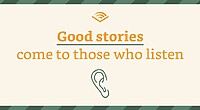The digital publishing revolution is so old that a great many reading consumers might not be able to envision a time when they couldn’t simply pop online to order a book, download a new title from their favorite author, or use an app or PDF for supplemental book material. eBooks and digital publishing have simply become a part of everyday life for many people.
But there’s one branch of the publishing family tree that has still not caught up with the times: educational publishing. Nearly every facet of education has been left in the dust when it comes to access, price, and readily available updates to texts. When this digital publishing took off in a major way, educational publishers were supposedly going to insert e-textbooks into every classroom from preschool through grad school.
What’s the holdup? There are a lot of factors stopping the widespread switch to files instead of paper, but that’s only one factor in educational publishing.
The other is the way new concepts are discovered, researched, and published to begin with. Scientific research is carefully horded by academic publishers, keeping anyone without deep pockets from accessing the findings. What’s even more concerning is that many research projects are funded by the taxpayers before going straight to the publisher’s paywall.
In some ways, it’s like the history of forceps (yes, that often-controversial instrument of childbirth). When forceps were first invented, they were a carefully guarded secret. It’s not that they were whacky-science or anything, but simply that the creator could force families to pay handsomely for a better chance at surviving the procedure. The Chamberlen family guarded their invention and were known to only provide medical care to wealthy and even royal patients. The rest of the commoners could simply die in childbirth if they couldn’t pay.
That continues to be the attitude in academic and scientific publishing. If you want to know the outcome of an expensive research project, you won’t find that information for free, regardless of who footed the bill for it. Until steps are taken to ensure that scientific findings are available to all, the gatekeepers will continue to serve only the wealthy who can foot the bill.
Mercy Pilkington is a Senior Editor for Good e-Reader. She is also the CEO and founder of a hybrid publishing and consulting company.

